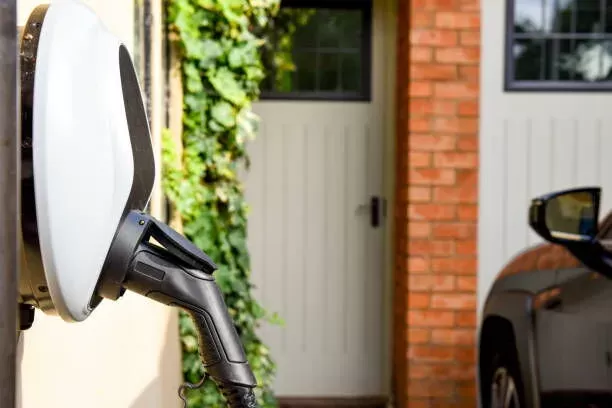Notifications

6 minutes, 21 seconds
-192 Views 0 Comments 0 Likes 0 Reviews

Topper Company, a leading professional EV charger manufacturer in China, delivers reliable electric vehicle charging stations and comprehensive charging solutions.
The electric vehicle (EV) market is growing rapidly, with over 3 million EVs sold globally last year alone. As more drivers choose eco-friendly transportation, convenient and reliable home charging is becoming a top priority. In fact, nearly 80% of EV owners say they prefer to charge their vehicles at home overnight.
While Level 1 chargers (standard wall outlets) are accessible, they charge too slowly for most users. On the other hand, Level 3 DC fast chargers—delivering up to 350 kW—are fast but costly and power-intensive, making them suitable primarily for public infrastructure.
For homeowners, the Level 2 charger—operating on a 240-volt circuit—strikes the perfect balance between speed, cost, and convenience. But switching to electric vehicles involves more than buying a car; it also means preparing your home for charging.
No more driving around to find a public station. With a Level 2 charger installed at home, your EV charges overnight and is ready to go in the morning.
Charging at home, especially during off-peak hours, is significantly cheaper than using public charging stations. Many utility companies offer special EV electricity rates to further reduce costs.
Compared to Level 1 chargers (4–5 miles of range per hour), a Level 2 charger delivers up to 25 miles of range per hour. This means less time waiting and more time driving.
EV chargers are increasingly viewed as modern home upgrades. Homes equipped with EV charging capabilities can be more attractive to buyers and command higher resale prices.
A licensed electrician can assess whether your home can support a Level 2 charger. Older homes may require panel upgrades or a dedicated 240V circuit.
Install the charger close to where you park—ideally in the garage or driveway. Shorter distances to the electrical panel reduce wiring costs. For outdoor installations, choose a weather-resistant, IP-rated charger.
Select the Right Charger
Choose a Level 2 charger compatible with your EV, considering speed, smart features (e.g. Wi-Fi, app control), and whether it's hardwired or plug-in.
Hire a Qualified Electrician
This is a high-voltage installation—DIY is not recommended. A licensed electrician ensures safety, code compliance, and optimal charger placement.
Obtain Permits
Depending on your local regulations, you may need electrical and/or building permits. Your electrician can often help handle this process.
Upgrade Your Electrical Panel (if needed)
Some homes may require a panel upgrade or a dedicated breaker. Costs vary depending on the complexity and location.
Mount and Connect the Charger
Your electrician will install the charger, run wiring from the panel, and ensure proper grounding and insulation.
Test the Charger
After installation, test the system thoroughly. Ensure your vehicle charges properly and safety features are working as expected.
| Category | Cost Estimate (USD) |
|---|---|
| Level 2 Charger (Plug-in) | $400 – $1,500 |
| Level 2 Charger (Hardwired) | $500 – $2,000 |
| Electrical System Inspection | $100 – $250 |
| Panel Upgrade (if needed) | $1,500 – $3,000 |
| Professional Installation | $300 – $1,000 |
| Permit Fees | $50 – $500+ (varies by location) |
| Monthly Charging Cost | ~$30 – $60 (depends on usage and local rates) |
Charger Type: Hardwired units are more durable and often used outdoors; plug-in models are flexible and easier to replace.
Electrical Upgrades: Homes with older panels or limited circuit space may require significant upgrades.
Labor Costs: Electrician fees vary by region and job complexity.
Permits and Inspections: Some jurisdictions require multiple permits or safety inspections—check with your municipality.
Ongoing Maintenance: Minimal. Just keep cables organized and the area clean. Check periodically for wear and tear.
Installing a Level 2 charger at home is one of the smartest investments an EV owner can make. It’s faster, more convenient, and more cost-effective than relying on public charging stations. It also adds value to your home and ensures that your vehicle is always ready for the road.
Before you install, evaluate your electrical system, select a safe and efficient location, and work with a certified electrician to ensure compliance with safety codes. As EV ownership becomes the norm, a home charging station isn’t just a perk—it’s a necessity for hassle-free driving.Know more about Google SEO Directory
China EV Chargers EV Charger Manufacturer EV Charging Solutions

